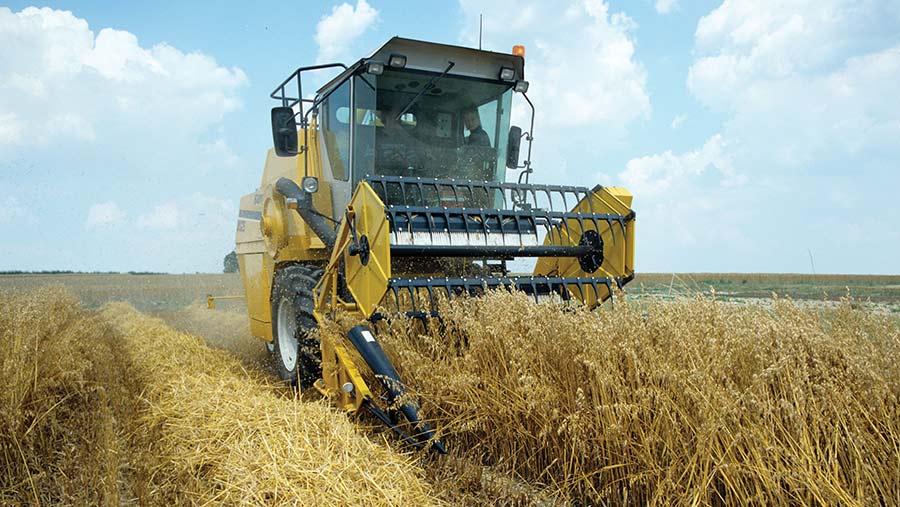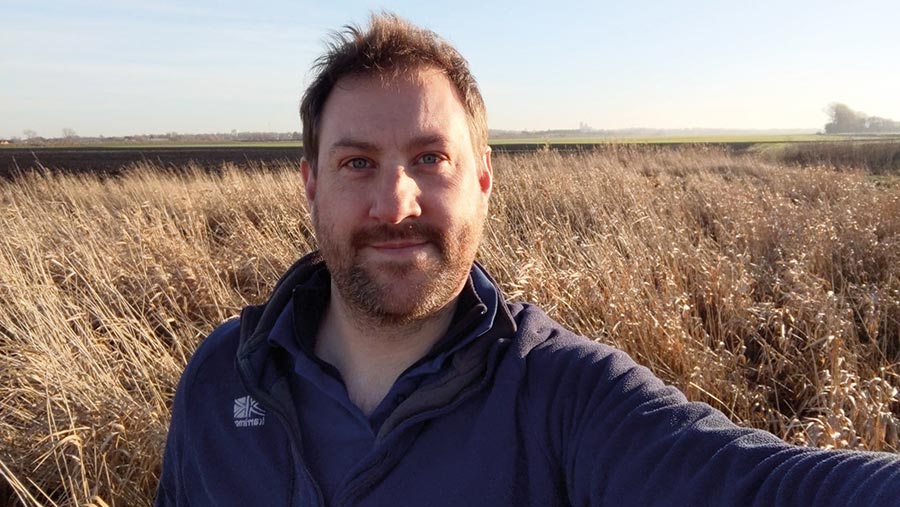AHDB ‘will be new sheriff’ says cereals sector’s chairman
 © Nigel Cattlin/Alamy Stock
© Nigel Cattlin/Alamy Stock AHDB Cereals and Oilseeds is going to step up, deliver for its levy payers and make a real difference to farm businesses, pledges new sector chairman and Cambridgeshire farmer Tom Clarke.
After a “near death experience”, Tom acknowledges that the sector organisation hasn’t been in the game for the past few years, at a time when its contribution was needed more than ever.
“The challenges that farmers are up against have always been there, but they’re even more acute now,” he says. “Whether it’s climate change, carbon or the huge issues around the use of farm data – to name a few – there’s a real urgency.”
See also: Tim Rycroft to stand down as chief executive of AHDB
Farmer facts

© Tom Clarke
- Tom Clarke farms 405ha near Ely, Cambridgeshire, all of which is below sea level
- The farm produces milling wheat, sugar beet and potatoes, as well as linseed
- His appointment as sector chairman, which commenced in April 2023, is for three years
From now on, AHDB Cereals and Oilseeds will lead on many of these issues on behalf of farmers, so that their businesses can benefit.
“What we do is so important as it’s independent and free of commercial bias. We’re going to do much more – farmers need it,” he says.
Carbon
He highlights carbon credits as an example. A standardised way of baselining, measuring and monitoring soil carbon, as well as the potential for sequestration, is long overdue.
“That market is often referred to as the Wild West. From now on, the AHDB will be the new sheriff in town.”
The problems that the AHDB has encountered in the last few years have been well documented – from a fire to Covid and the potatoes/horticulture sector vote, but much of that disruption has now been dealt with, he believes.
“We’re through the worst, have stopped being inwardly focused and are now going to change gear and get on with making a difference to our levy payers.”
Funding shortfall
To do that, there must be recognition that there is a funding shortfall and the levy may have to change – an issue that the AHDB announced it would be consulting on at the Cereals Event in June.
“Our one-off research budget used to be £2.5m,” says Tom. “Over the past 10 years that’s been eroded; in 2023 it stands at £600,000.”
The current levy – 46p/t for cereals and 75p/t for oilseeds – last went up in 2011. The AHDB’s overall budget has been flat since, although key projects such as the Recommended List and RB 209 Fertiliser Manual have been protected and prioritised.
A 40% reduction in spending power at a time when costs are rising is an obstacle to his ambitious plans and the pace at which they can be implemented, he admits.
“If we are going to respond in a flexible and agile way, as well as being nimble and forward-looking, there will have to be more money.”
So what’s on the cards?
The one-off research budget will increase by £750,000 next year, he reveals. “We are not going to reinvent the wheel with that money, but we will put it into much-needed projects that help farming businesses.”
New projects
Projects will be selected by a sub-committee of the sector council, which will also assess what evidence exists before choosing which projects to take forward.
Crucially, there will be a knowledge exchange clause in all contracts, so that farmers can absorb the findings and put them into practice, where appropriate.
“We already have a dedicated knowledge exchange team, who can translate research results and take them out to farmers.
“Farmers learn best from other farmers – they always have. So seeing things for real, such as our Monitor Farm and Strategic Farm platforms, will be a central part of what we deliver.”
Tom also stresses that farmers will have more say from now on.
“Bureaucracy is reducing, all the sector councils will play a bigger role and our focus will be on helping farmers with the priorities they have identified.”

